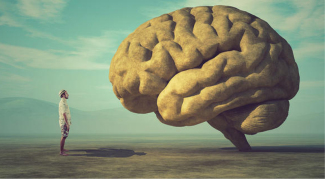Coordinators: Delphine Picard (Avignon)/Aline Frey (Marseille)
Teacher contact: Delphine.picard@univ-amu.frProfessor of developmental psychology
Objectives:
To discover the brain of the student, how this brain works and learns, to work on preconceived ideas (neuromyths) and to know the recent contributions of neuro-education, this to envisage effective learning in class!
Understanding that "our brain is designed to learn" allows students to develop a metacognition on the brain mechanisms of learning and their development, and to consider effective and conscious pedagogical contexts (reflective on one's teaching practice).
Pre-requisites: none! You can register for this course without knowing anything (or almost) about the brain; we will cover all the basics in Day 1 so that we can then calmly approach in Day 2 and Day 3 precise elements of the functioning of the brain in learning and the recent contributions of neuro-education.
The UE takes place over 3 days, at a rate of 6 hours per day (timetable: 9am-12pm; 1pm-4pm); 2 hours of delocalized TD are allocated on the one hand to the collection of data by the student on his professional field (survey with teachers) and on the other hand to the feedback made on the results to the respondents (presentation of the survey report)
Each day is organized in two parts:
- A first time of presentation of scientific content (parts 1, 3, and 5) on the brain, its functioning, and the contributions of neurosciences applied to education; the method of questioning is widely used in order to reveal and start from the spontaneous representations of the students on the subject, as well as the method of systematic evaluation of the knowledge approached in the form of regular quizzes on the brain.
- A second time of workshop work (by sub-groups of students) on neuromyths, these erroneous beliefs about the brain and its functioning (parts 2, 4, and 6); the students work on the origins and scientific facts associated with each neuromyth, carry out an investigation on their training or practice field, then participate in the analysis and writing of an investigation report. These workshops result in the production of documents associated with short oral presentations made in front of the entire group.
Schedule
Day 1.
Part 1- Basic knowledge about the brain, Brain Quiz 1
Part 2- Neuromyths (workshop), preparation of field survey
Day 2.
Part 3- Brain Quiz 2, How the brain learns
Part 4- Neuromyths survey results (workshop)
Day 3.
Part 5- Contributions of neuroeducation, Brain Quiz 3
Part 6- Contributions of Neuroeducation, Neuromyths Survey Report (workshop)
The evaluation focuses on the followinghe following expectations:
- .B1-1. Mobilizes professional resources (research findings, institutional references, didactic and pedagogical orientations) on child development and the construction of learning to support his/her action
- C1. Mobilizes research knowledge to analyze specific aspects of his/her teaching and their impact on students
- C3. Conducts a training/information watch in relation to his/her profession
The evaluation is based on the student's active participation in the course; the final report is a brief investigation report on neuromyths.

